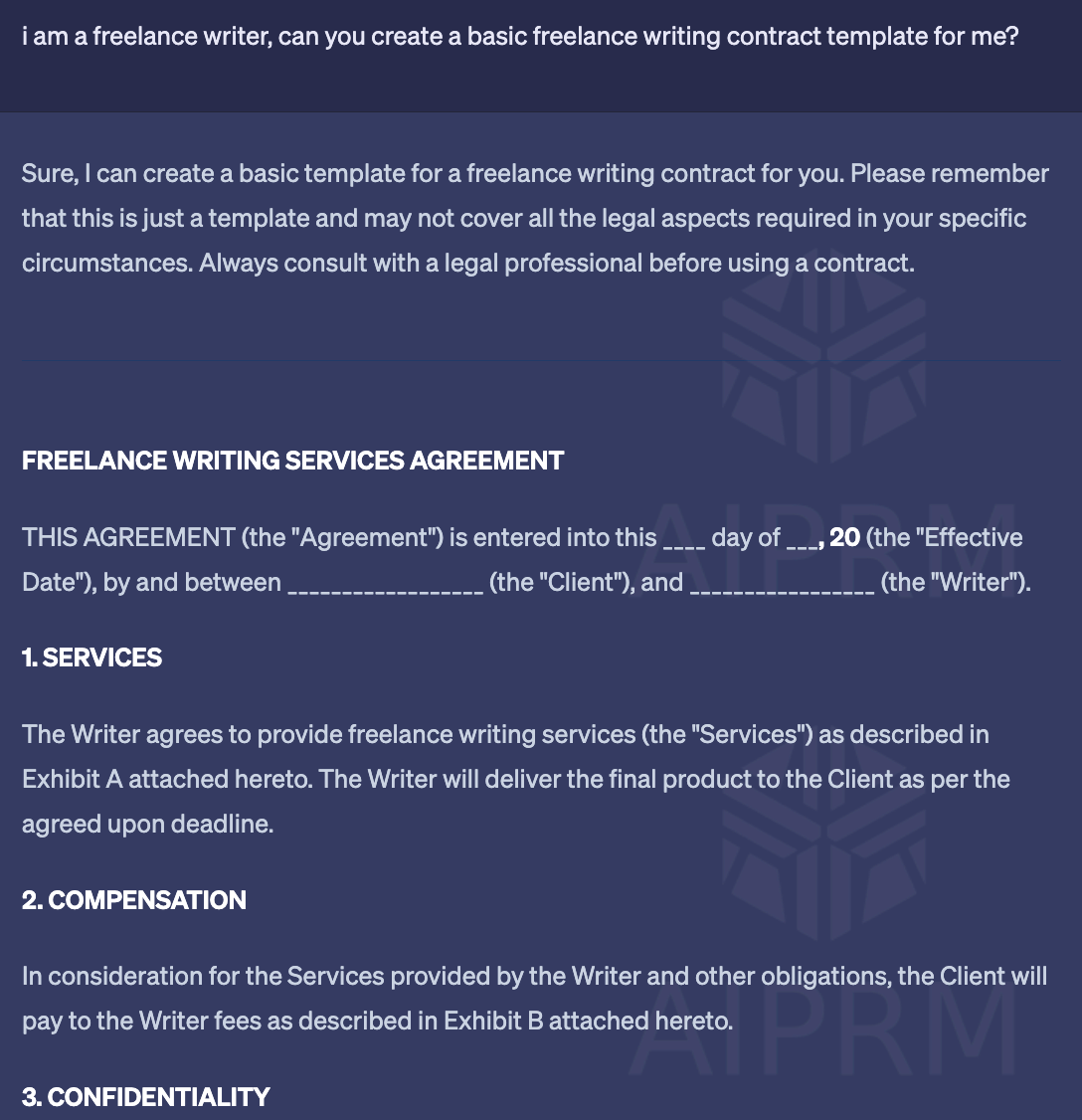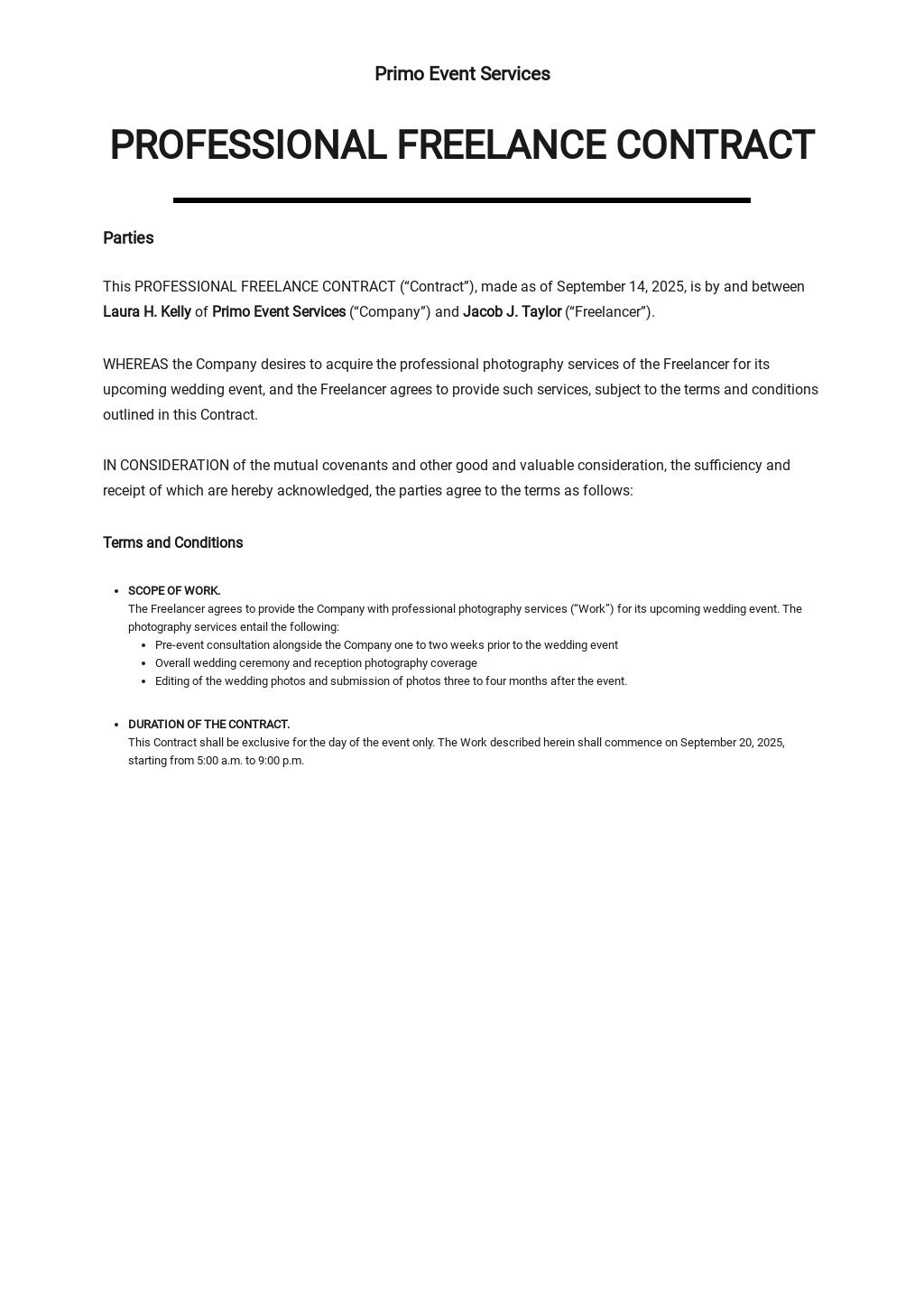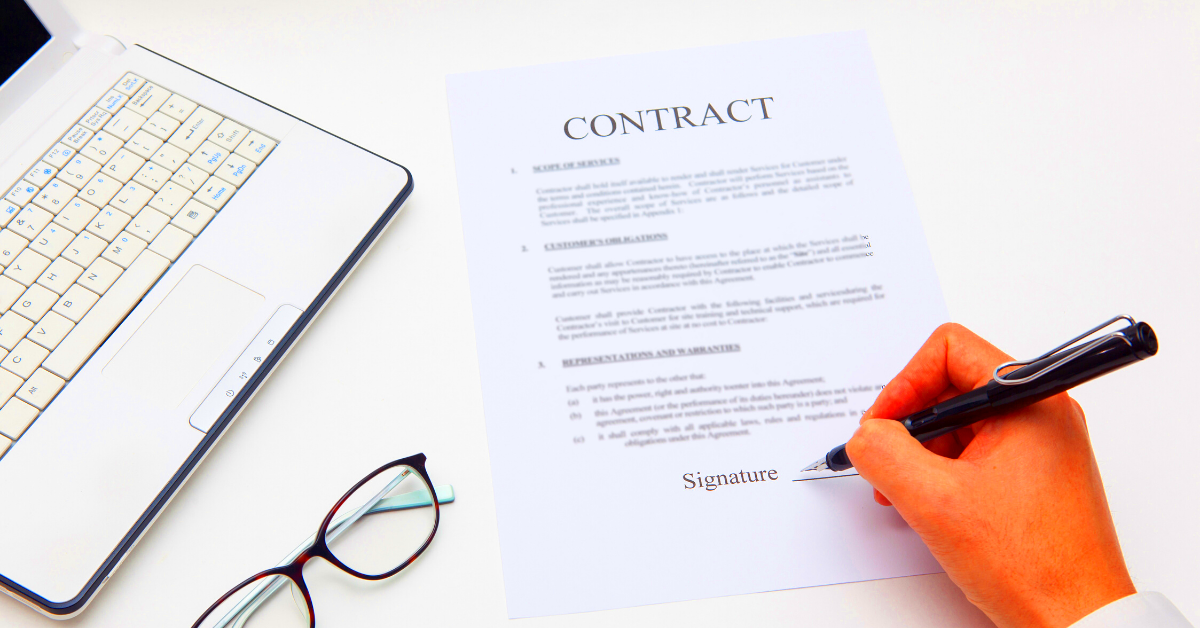In the realm of freelancing where things can be quite unpredictable having a strong contract is akin to possessing a reliable umbrella during a downpour. I recall my initial experiences as a freelancer when I believed that agreements were sufficient. Oh how I discovered that lesson in a challenging way! A meticulously crafted contract guarantees that both you and your client share expectations and can steer clear of any potential miscommunications.
A contract safeguards your interests by specifying what you will provide, how you will be compensated and the project timeline. It helps avoid conflicts and offers a path to follow if things don’t proceed as expected. Personally I’ve found that having a contract has spared me hours of stress and back and forth discussions. It serves as a approach to demonstrate your commitment to your work and your appreciation for your time and expertise.
When you put your agreement in writing it helps establish trust with your clients. It shows that you are dedicated and organized which can open doors to opportunities and strengthen client relationships. So always recognize the impact of a carefully prepared contract. Its more than just a formality; its a protective barrier for your freelance venture.
Key Elements to Include in Your Contract

A well drafted freelance agreement needs to address aspects to ensure transparency and safeguard both parties. Based on my personal insights I believe these elements are vital
- Project Description: Clearly describe the work you will be doing. This should include details about the project’s objectives and any specific requirements.
- Payment Terms: Outline how and when you will be paid. Specify the payment amount, method, and schedule. It’s also wise to include terms for late payments.
- Timeline: Set clear deadlines for deliverables and milestones. A timeline helps manage expectations and keeps the project on track.
- Revisions: Define the number of revisions included and how additional changes will be handled. This prevents scope creep and additional unpaid work.
- Confidentiality: If your project involves sensitive information, include clauses to protect confidentiality.
- Ownership: Clarify who owns the rights to the work once it’s completed. This helps avoid future disputes over intellectual property.
These components are essential for a strong agreement. If you overlook them you could end up in challenging situations. Be sure to customize each contract according to the unique requirements of the project and client. Taking the time to address every aspect is well worth it.
Also Read This: How to Fix a Profile Image Size in Fiverr
Defining Project Scope and Deliverables

Establishing the boundaries and outcomes of a project is akin to establishing the guidelines for a game before diving into it. During my initial forays into freelancing I encountered hurdles due to my failure to specify what would be part of the project. This resulted in misunderstandings and conflicts that could have been prevented through a well defined scope.
Defining the project scope involves establishing limits on what will and wont be done. This entails outlining the specific tasks, goals and results that are anticipated from you. For instance when working on a website project clarify whether you will focus solely on the design aspect or if you will also take care of development and content creation.
Also Read This: Perfect Print: Adding Bleed and Crop Marks in Canva Simplified
Setting Clear Payment Terms

When it comes to freelance contracts nailing down the payment terms is super important. I can still recall my initial big project—both thrilling and intimidating. I thought a verbal agreement regarding payment would do the trick but I quickly realized things when the client postponed the payment. That experience taught me that having payment terms is essential, for a hassle free freelancing journey.
Establishing payment terms involves specifying the details of when and how you will be paid for your services. Here are a few important aspects to cover.
- Payment Amount: Specify the total fee or rate for the project. Whether it’s a flat fee or hourly rate, make it clear.
- Payment Schedule: Define when payments are due. You might request an upfront deposit, with subsequent payments tied to milestones or at project completion.
- Payment Method: Agree on how you will receive payment—bank transfer, PayPal, or other methods. Ensure both you and the client are comfortable with the chosen method.
- Late Payment Terms: Include details on what happens if payments are delayed. This could involve a late fee or interest charges, which can motivate prompt payment.
When you have these specifics laid out it helps prevent misunderstandings and makes sure you get paid fairly and on time. From what I’ve seen clients value this transparency as it fosters a professional connection based on mutual respect. So make sure not to overlook this step; it’s crucial, for your peace of mind and financial well being.
Also Read This: Can Sellers See Gigs You’ve Ordered on Fiverr?
Establishing Timelines and Deadlines
Deadlines and schedules play a role in freelance work. They help maintain progress and align your expectations with those of your client. I learned this lesson the hard way when I accepted a project without a timeline. It resulted in a constant back and forth of changes and setbacks. That experience taught me the importance of establishing deadlines.
To set up timelines and due dates that work well keep these points in mind.
- Project Milestones: Break the project into smaller, manageable milestones. Each milestone should have its own deadline. For example, if you're creating a website, milestones might include wireframe completion, first draft, and final review.
- Overall Deadline: Set a final deadline for project completion. This helps both you and the client track progress and stay focused.
- Buffer Time: Allow for some buffer time in case of unexpected issues. It’s better to finish early than to rush at the last minute.
- Regular Updates: Schedule regular check-ins or updates with your client. This keeps them informed of your progress and allows for any necessary adjustments along the way.
Establishing timelines is crucial for aligning client expectations and allowing ample time to deliver high quality work. They also act as a safeguard against project creep where added tasks or modifications prolong the duration without end. Believe me setting these deadlines from the outset leads to a more streamlined project flow and fosters a happier collaborative partnership.
Also Read This: Can You Apply for Jobs on Fiverr? Everything You Need to Know
Handling Revisions and Changes
No matter how meticulously you organize things in freelancing revisions and adjustments are inevitable. I recall being involved in a significant branding project where the client kept requesting modifications. At first I wasn't sure about the process for managing revisions which resulted in frustration for both parties. That experience highlighted the significance of having a well thought out approach, to revisions and changes.
Here’s how to handle revisions effectively:
- Revision Policy: Define how many revisions are included in the project fee. This sets clear boundaries and helps manage client expectations. For example, you might include two rounds of revisions in the initial fee.
- Additional Changes: Outline how additional revisions or changes will be handled. Specify if there will be extra charges for changes beyond the agreed number of revisions.
- Change Requests: Set a process for how clients should submit change requests. It could be through email or a project management tool. This helps keep everything organized and prevents miscommunications.
- Document Changes: Keep detailed records of all changes requested and made. This protects you if disputes arise and ensures that both you and your client are on the same page.
Establishing a transparent approach to revisions not helps set client expectations but also keeps you grounded. It’s about striking a balance between being accommodating and safeguarding the value of your time and work. Keep in mind that having a defined procedure for managing revisions fosters a smoother and more productive collaboration.
Also Read This: How to Sell Digital Products on Fiverr
Including Confidentiality and Ownership Clauses
When I first started freelancing I didn't really grasp the significance of confidentiality and ownership clauses. I believed they were mere legal formalities. However after encountering situations where information was mishandled and ownership disputes surfaced I came to realize, how essential these clauses truly are. They serve as safeguards in your contract, protecting both you and your client.
Here are the reasons to incorporate these provisions and the key areas they should address.
- Confidentiality Clause: This clause ensures that any sensitive information shared during the project stays private. For instance, if you’re working on a new product design, the details should not be disclosed to third parties. This clause helps in building trust with your client, knowing their proprietary information is secure.
- Non-Disclosure Agreement (NDA): An NDA is a formal agreement that outlines what information cannot be shared. It’s often used for more sensitive projects where confidentiality is paramount. Make sure it specifies the duration of the confidentiality obligation and the consequences of a breach.
- Ownership Clause: This clause specifies who owns the rights to the work once it’s completed. It’s essential to clarify whether you retain any rights to the work or if it’s fully transferred to the client. For example, if you design a logo, the client should understand whether they have exclusive rights or if you can use it in your portfolio.
- Usage Rights: Detail how the client can use the work. For instance, if you’re writing content, specify if they can use it in marketing materials or only for internal purposes. This prevents any potential misuse of your work.
Adding these terms to your agreement safeguards your interests while establishing clear expectations with your client. This is vital for upholding professional relationships and ensuring that your work is valued and safeguarded.
Also Read This: Is Academic Work Allowed on Fiverr?
Tips for Negotiating and Finalizing the Contract
When it comes to hammering out a freelance deal it can be a balancing act. I recall a project where the client and I went back and forth on the details so often that it seemed like wed never come to an understanding. However through my experiences I’ve picked up some tactics that help streamline and enhance this process.
Here are a few suggestions to assist you in striking a deal and wrapping up your agreement.
- Be Prepared: Before entering negotiations, know your worth and have a clear understanding of your project’s requirements. Be ready to explain why your terms are fair and justified based on the scope of work.
- Communicate Clearly: Clear communication is key. Discuss all terms openly with your client, including payment, deadlines, and scope. Avoid vague language that could lead to misunderstandings later on.
- Be Flexible: While it’s important to stand firm on crucial terms, being flexible on some aspects can help in reaching an agreement. For example, if a client can’t meet your initial payment terms, consider negotiating a compromise that works for both sides.
- Document Everything: Once you reach an agreement, make sure all terms are documented in the contract. Verbal agreements are not enough. A written contract ensures that both parties have a clear reference point and reduces the risk of disputes.
- Review and Revise: Don’t rush the finalization. Take the time to review the contract thoroughly. If needed, seek advice from a legal professional to ensure everything is in order and that your interests are protected.
- Stay Professional: Maintain a professional demeanor throughout the negotiation process. Building a positive relationship with your client can lead to smoother negotiations and long-term collaboration.
The process of negotiating and finalizing a contract can be smooth sailing. By being well prepared and communicating effectively, you can establish agreements that benefit both you and your clients paving the way for successful projects and lasting professional connections.
Also Read This: How to Become a Freelance Personal Trainer
FAQ
1. Why is a freelance contract necessary?
A freelance contract is essential because it outlines the terms of the agreement between you and your client. It clarifies the scope of work, payment terms, deadlines, and other important details, which helps prevent misunderstandings and disputes.
2. What should I include in my contract?
Your contract should include key elements such as the project description, payment terms, deadlines, revision policy, confidentiality and ownership clauses, and any other specifics relevant to the project. Make sure each detail is clearly defined to avoid confusion.
3. How do I handle changes to the project after the contract is signed?
Include a clause in your contract that outlines how changes and revisions will be handled. Specify the number of revisions included and any additional charges for extra changes. This helps manage client expectations and ensures you’re compensated for additional work.
4. What if the client doesn’t pay on time?
Your contract should include payment terms and conditions for late payments. This might involve late fees or interest charges. Having these terms in place can encourage timely payments and provide you with recourse if delays occur.
5. Can I use the work I did for a client in my portfolio?
The contract should specify ownership and usage rights of the work. If you want to use the work in your portfolio, make sure to include this in the contract or get explicit permission from the client. This ensures both parties agree on how the work can be used.
Conclusion
Creating a comprehensive freelance agreement may appear challenging initially, but it's crucial for establishing a thriving freelance journey. Based on my personal encounters I can assure you that a robust contract not clarifies expectations but also fosters a sense of trust with your clients. Think of it as a dependable tool that navigates you and your client through the project helping both of you stay aligned and steer clear of potential obstacles.
By investing time in incorporating aspects like payment terms, project details and confidentiality provisions you not only safeguard your own interests but also showcase your level of professionalism. This professionalism often leads to client relationships, smoother project execution and increased prospects for future collaborations. Therefore view the process of drafting and negotiating contracts as an essential component of your freelancing arsenal. With each contract you establish you'll build confidence and clarity setting the stage, for a more structured and prosperous freelancing path.




